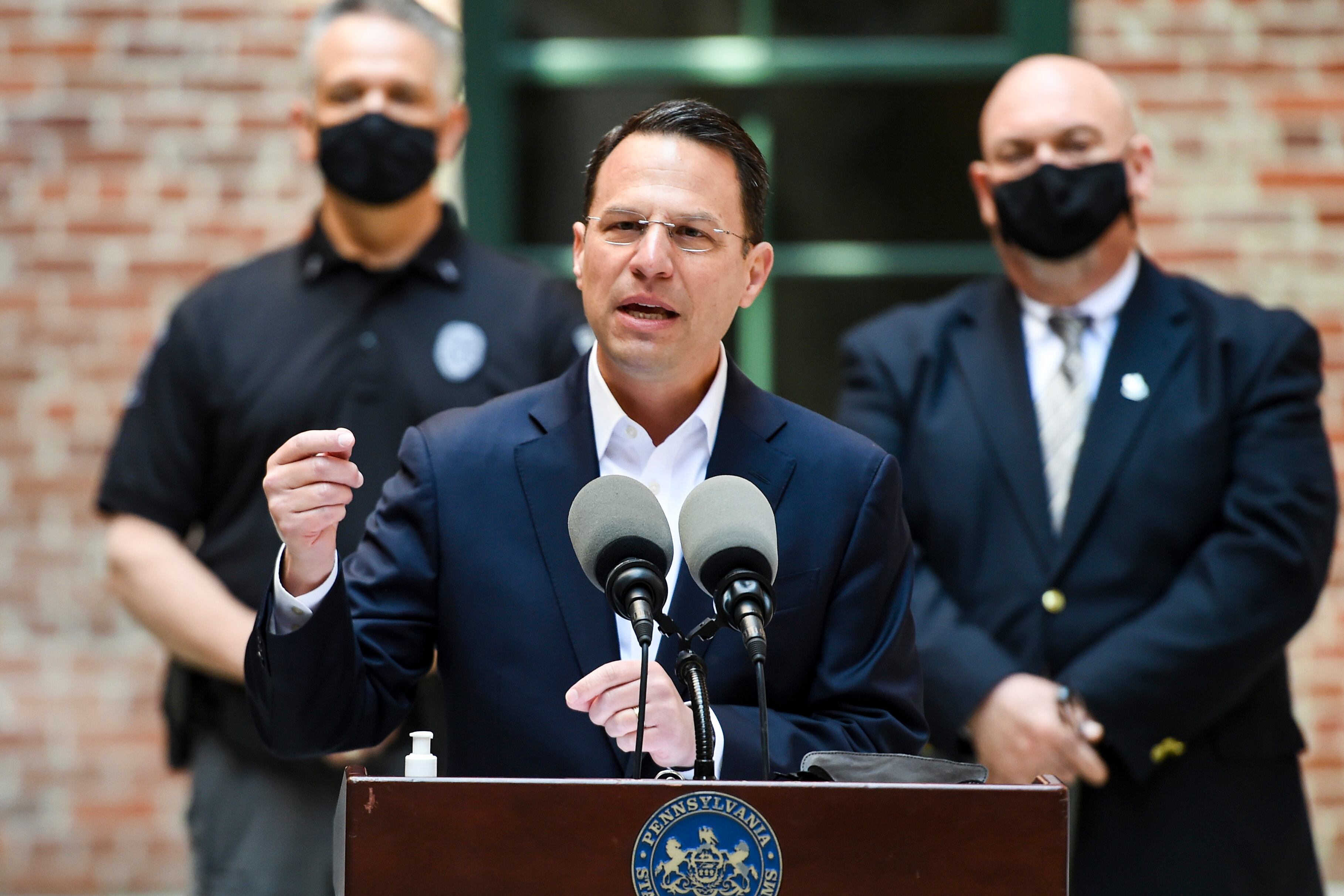Pennsylvania Attorney General Josh Shapiro filed an amicus brief Monday in the state’s landmark school funding lawsuit supporting the plaintiffs’ contention that the General Assembly is violating the state constitution by not providing more money to school districts and distributing it more fairly.
Shapiro, who ran unopposed Tuesday for the Democratic nomination for governor, argues that the constitution says the state has a “fundamental need for an intelligent citizenry” and the General Assembly must “provide for the maintenance and support of a thorough and efficient system of education to meet the needs of the Commonwealth.”
By allowing the state to maintain a system in which some districts spend more than twice the amount per student as others, and in which for the most part needier students get less support, the General Assembly “has not lived up to its obligation,” Shapiro said.
“The evidence before the Court shows that the resources of Petitioner schools and Philadelphia are inadequate,” Shapiro said in his brief. “It shows that educational outcomes in those districts are both significantly worse than those in other districts across the Commonwealth and inadequate in their own right.”
The plaintiffs in the case, William Penn School District et al. vs. Pennsylvania Department of Education et al., include six school districts, several families, and two statewide advocacy groups. They argue that the support they receive from the state is insufficient to provide their students with a quality education.
Philadelphia is not a plaintiff – it was under state control when plaintiffs filed the lawsuit in 2014 – but Superintendent William Hite and Chief Financial Officer Uri Monson testified before Commonwealth Court Judge Renée Cohn Jubelirer that district schools lack the resources they need.
In his brief, Shapiro said the “Commonwealth’s most fundamental need is an intelligent and informed citizenry, which will support our democratic institutions, grow our economy, and strengthen the foundations of our shared civic life.”
Shapiro’s was one of six amicus briefs filed by the Monday deadline on behalf of the plaintiffs.
Constitutional law professors from the University of Pennsylvania, Drexel University, Temple University, Penn State, and the University of Pittsburgh said in an amicus brief that legal precedent makes it clear that “a school funding scheme that relies heavily on the wealth of the local school district to determine the funding available to educate school children implicates fundamental rights.”
While on average states pay about half of total school costs, in Pennsylvania that figure is about 38%.
Meanwhile, in a separate amicus brief, various businesses, groups such as the League of Women Voters, and several academics said “a high-quality education remains beyond the reach of many of our students,” and that as a result, “Pennsylvania has failed in its mission to ensure that all students are college and career ready.”
“Indeed, the evidence is overwhelming that many school districts in the Commonwealth are underfunded [and] that schools educating students of color and students who are economically disadvantaged disproportionately suffer,” those groups stated in their brief.
And advocacy groups ranging from Children First to the state’s school nurses association said in their own brief that, “Based on our experience, the deprivations endured by the students in this state have only become more entrenched over decades.”
Jubelirer heard testimony for four months, and the case is now in its post-trial phase. Further oral argument is scheduled for July 26, and Jubelirer could issue a decision as early as the fall.
Among the defendants – the legislative and executive branches of state government – only Republican legislative leaders are actively defending the state funding system. They argue the system meets basic constitutional standards, and that in any case it is up to the legislature, not the courts, to make funding decisions. They also offer school choice, in the form of more charters, as a solution to educational inequity.
The Commonwealth Foundation filed a brief backing their position, saying that poor districts in Pennsylvania spend more per pupil than the national average.
Gov. Tom Wolf, a Democrat, is technically a defendant, but has not been disputing the plaintiffs’ case. The upcoming gubernatorial election between Shapiro and the Republican nominee could have big implications for the case, although school funding has not been a campaign issue. Many of the plaintiff districts are in poor rural areas that strongly favor Republicans, but must tax their own residents heavily to raise enough money to fund schools.
The constitution’s education clause is “a positive mandate that no Legislature could ignore,” Shapiro said in his brief. “Yet the General Assembly has done just that. Despite the best efforts of the Commonwealth’s dedicated teachers and administrators, many Pennsylvania schools are not able to provide the level of education required by the Constitution – not for lack of trying, but for lack of adequate funding.”
Dale Mezzacappa is a senior writer for Chalkbeat Philadelphia, where she covers K-12 schools and early childhood education in Philadelphia. Contact Dale at dmezzacappa@chalkbeat.org.






